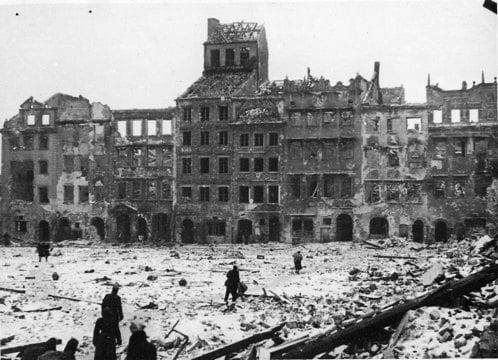

The Pack contains associated resources for the learning experience, typically in the form of articles and videos. There is a teacher Pack (with only teacher information) and a student Pack (which contains only student information). As a teacher, you can toggle between both to see everything.
Here are the teacher pack items for The End of World War II:


Overview In this experience, students begin by brainstorming possible solutions to postwar devastation, based on the aftermath of World War II. Then, they examine the end of the war in both the European theater and the occupation and reconstruction of Japan. Next, they analyze efforts led by the United States to rebuild Europe, especially through the Marshall Plan. Finally, they evaluate the role of the United Nations. The Teacher Pack contains background material on the immediate post-war period. Objectives
After World War II, Americans found themselves in a new era—one in which the United States was one of the world’s two superpowers—and clearly the wealthier of the two. In this experience, you’ll learn what the international situation was like in the aftermath of World War II.
Objectives

Destruction in Warsaw, Poland, January, 1945
Look at the photo of the capital of a large European nation. Warsaw, Poland, was physically destroyed by the war. Now imagine that two continents—Europe and Asia—are littered with the charred and broken remains of major cities, and teeming with masses of displaced, hungry people made homeless by the war.
That is exactly the position in which the world found itself as World War II ended.If you were the leader of a victorious nation facing that situation, what steps might you take? Sometimes political vision requires creativity! And keep in mind the steps taken after World War I and their results.
Accept any answers. After all, the Marshall Plan seemed counter-intuitive to many people when it was first proposed.
